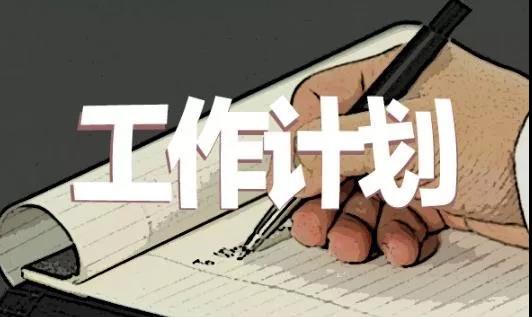英语初三知识点第1篇StudyAloneUnlessyouvegotacoupleoffriendswhoaresuper-seriousaboutgettingdowntobusiness,sta下面是小编为大家整理的英语初三知识点19篇,供大家参考。

英语初三知识点 第1篇
Study Alone
Unless you"ve got a couple of friends who are super-serious about getting down to business, stay away from group study sessions because they tend to get off-topic pretty Save the social time till after you"ve handed in your
独自学习
除非你有几个学习态度超级认真的朋友,否则请远离小组学习。因为这些人很快就会偏离主题。可以在考试结束后进行社交活动。
Create Your Perfect Study Area
The place where you study should be quiet, comfortable and free from Go to your room, close the door and kill as many distractions as possible - like music, television, and even the internet and your If you don"t have your own room that you can sneak away to, consider studying at the library
营造完美的学习环境
学习环境应保证安静、舒适、不受打扰。回到房间后,把门关上并尽可能地消除诸如音乐、电视节目、甚至是互联网和手机等一切令你分心的因素。如果你没有独立学习的房间,那么,可以考虑在图书馆自习。
Get it All Out
Your study materials, that Before you dig in, make sure you have all your books, notes, study guides and writing utensils in front of Don"t give yourself another excuse to get up and rummage
做好全部准备
也就是说,准备好你的学习资料。开始学习之前,确保所有的书、笔记、学习指南和书写工具摆在桌上。不给自己起身和翻找的借口。
Turn Your Notes into Flash Cards
Now that you"ve got all your notes in front of you, open up a pack of index As you read through the important facts, rewrite them in Q&A form on the For instance: to study historical facts, write the historical fact on one side of the card and the key details on the other To study geometry formulas, right the name of the formula on one side and the formula itself on the other
把笔记转为记忆卡
现在,把所有笔记摆在面前,然后打开一包索引卡。将浏览到重要内容,以问答形式将抄写在卡片上。例如,要学习历史事件,可以在卡的一面写上历史事实,在另一面写出关键细节。要学习几何公式,可以在卡的一面写上公式名称,在另一面写上公式内容。
Snack Healthy While You Study
If you want to stay sharp while you study, stay away from junk Instead, snack on studying-friendly foods like dark leafy greens, whole grains, peanut butter, milk and Feeling sluggish? Caffeine or energy drinks won"t help you in the long Get your energy boost instead by eating a banana or an
学习期间可食的健康小食
尽可能地远离垃圾食品,才能保持高效的学习状态。相反,例如黑叶蔬菜、全谷物、花生酱、牛奶和海鲜一类的小食,可以助你实现高效学习。感觉疲惫?从长远来看,咖啡因或能量饮料似乎都无济于事。但是,你可以选择吃香蕉或苹果来补充能量。
Narrow it Down
If you try to study every single thing your teacher"s ever said, you"ll go Instead, focus on the most important If you"re not sure what those are, read the study guide (if there is one), or ask your Once you"ve nailed down the important stuff, if there"s still time left before the test, you can move onto the finer
英语初三知识点 第2篇
in : 在旅馆的登记入住。
Check out: 在旅馆结账离开。
①通过…方式(途径)。例:I learn English by listening to
②在…旁边。例:by the window/the door
③乘坐交通工具 例:by bus/car
④在……之前,到……为止。例:by October在10月前
⑤被 例:English is spoken by many
与what的区别:
how通常对方式或程度提问,意思有:怎么样 如何,通常用来做状语、表语。
what通常对动作的发出者或接受者提问,意思为 什么,通常做宾语,主语。
①How is your summer holiday? It’s (how表示程度 做表语)
②How did you travel around the world? I travel by
③What do you learn at school? I learn English, math and many other
① What…think of…? How…like…?
② What…do with…? How…deal with…?
③ What…like about…? How…like…?
④ What’s the weather like today? How’s the weather today?
⑤ What to do? How to do it?
What do you think of this book?=How do you like this book?
I don’t know what I should do with the don’t know how I should deal with
What do you like about China?=How do you like China?
I don’t know what to do next step?=I don’t know how to do it next step?
㊣ What good / bad weather it is today!(weather为不可数名词,其前不能加 a )
㊣ What a fine / bad day it is today! (day为可数名词,其前要加 a )
英语初三知识点 第3篇
【一般将来时】
表示将要发生的动作或存在的状态,常与表示将来时间状语如 next year,tomorrow等连用。注意:在Will you …?问句中,回答必须是 Yes,I 或 No,I won"t而不能用Yes,I No, I shan"来回答过去将来时:过去将来时不可以单独使用,它一般在宾语从句中作间接引语,表示从过去某一时间看来将要发生的动作或存在的状态。如:They told me that they would go to work in
【现在完成时】
顾名思义,现在完成时表示的是已经完成的动作,但动作造成的影响还在,常被just,already,yet 等副词修饰。如:He has already gone to 对现在造成的影响是他已经不在这儿了。现在完成时还可用来表示过去发生的动作一直延续到现在,常带有for或since等表示一段时间的状语。如:Mr Wang has lived here since 表示说话前发生过一次或多次的动作,我们常用"过"来表示,常带有twice, once, ever, never等时间状语。如:I"ve never seen that
【过去完成时】
我们可以用"过去的过去"来概括过去完成时,表示过去某一时刻或某一动作之前已经完成了的动作,通常与by,before等构成的短语或when, before, after引导的从句连用。也可表示过去某一时间开始,一直延续到过去另一时间的动作,常和for或since构成的时间状语连用。用法和现在完成时大致相同,只不过又向前推了一个时态。
英语初三知识点 第4篇
everyday things=daily things日用品
find out查明;弄清
go on a vacation=take vacation去度假
paper cutting剪纸
such as=for example例如
turn…into…变成…
be covered with被…覆盖
rise into上升到;升入
have a point有道理
at that time在那时
by accident偶然;意外地
by mistake错误地;无意中
go past=pass by经过;路过
come on来吧,加油
on one’s way to在某人去…的路上
pardon me抱歉;对不起;请再说一遍
from time to time时常;有时
such a great idea如此好的一个主意
英语初三知识点 第5篇
动词不定式作主语
To give is better than to
To reach there on foot is
动词不定式作主语时,可以用it 代替,把实际主语不定式放在后面。
It’s better to give than to
It’s impossible to reach there on
It’s + adj + for to do
It’s not difficult for me to study English
It’s easy for him to work out this math
在这个句型中,如果形容词与不定式的逻辑主语关系密切,并且形容词用来说明逻辑主语的性质、品质、特点等,由of引出逻辑主语。这类形容词主要有nice, kind, good, wrong, right等。
英语初三知识点 第6篇
意为“在……旁”,“靠近”。
Some are singing and dancing under a big Some are drawing by the
有的在大树下唱歌跳舞。有的在湖边画画儿。
意为“不迟于”,“到……时为止”。
Your son will be all right by supper
你的儿子在晚饭前会好的。
How many English songs had you learned by the end of last term?
到上个学期末你们已经学了多少首英语歌曲?
表示方法、手段,可译作“靠”、“用”、“凭借”、“通过”、“乘坐”等。
The monkey was hanging from the tree by his tail and
猴子用尾巴吊在树上哈哈大笑。
The boy’s father was so thankful that he taught Edison how to send messages by railway
孩子的父亲是那么的感激,于是他教爱迪生怎样通过铁路电报来传达信息。
表示“逐个”,“逐批”的意思。
One by one they went past the table in the
他们一个一个得在黑暗中经过这张桌子。
表示“根据”,“按照”的意思。
What time is it by your watch?
你的表几点了?
和take , hold等动词连用,说明接触身体的某一部分。
I took him by the
我拉住了他的手。
用于被动句中,表示行为主体,常译作“被”、“由”等。
English is spoken by many
英语被许多人说。(即“许多人讲英语。”)
英语初三知识点 第7篇
used to 意为过去常常做某事。
used to 的用法
肯定句:used这个词没有人称的变化,to后面接动词原形。
否定句是didn’t use to….
When I was a child, I didn’t use to like
当我还是孩子的时候我不喜欢苹果。
疑问形式是Did you use to…?
Where did you use to live before you came here?
当你来这儿之前你住哪儿?
含有used to 的句子的反意疑问句不要usedn’t + 主语,而用didn’t + 主语。
——He used to smoke, didn’t he?
——他过去常常吸烟,是吗?
Yes, he No, he didn’
是的,他吸。/ 不,他不吸。
英语初三知识点 第8篇
一、【如何学好初三英语】:词汇
词汇是学好英语的关键,没有足够的词汇就无从谈起听、说、读、写。
词汇量的大小决定一个学生英语水平的高低。因此在初中阶段除要掌握《大纲》要求的800多词汇外,还要扩充500个左右的词汇。在学习词汇的过程中,要掌握词的拼读规则,根据规则记忆单词;同时还要根据构词法知识记忆和扩充单词,通过语境理解和记忆单词也是一个学习单词的好方法。目前词汇在中考试题中汉译英的试题越来越少,取而代之的是词汇在语境中的运用考查比重越来越大。在进入学习英语的初级阶段时,掌握语音知识是学好英语单词的基础,读准英语音素是拼读音标的前提。因此一定要熟练掌握48个音素,要做到会拼读、拼写。有些同学认为中考试题的笔试部分取消了对语音的考查,于是就其次,要注意训练自己听音、辨音和模仿的能力。课堂上,专心听老师的发音和磁带上的录音,争取当堂学会。对于那些比较拗口的单词、短语或句子,课下一定要挤时间反复模仿,直到读准、读熟为止。再次,熟练掌握读音规则,培养自己根据读音规则把字母(或字母组合)与读音建立起联系的能力。因为掌握拼读规则对单词的记忆很有好处。
二、【如何学好初三英语】:语法
语法是学好英语的基础,它是掌握英语的工具。在你掌握了一定的词汇量后,了解一些语法知识是非常必要的。选择填空是考查语法的一个重要题型。它可以通过选择的方式考查名词、动词、代词、形容词、副词、连词、介词和数词等等。覆盖面较广。初中阶段所学的语法知识就是那么屈指可数的几个,反复练习过多遍,为什么到头来还是出错呢?这种一错再错的现象在学生中是普遍存在的,即某个题目在以前曾做错过,以后再次见到这个题,还是做不对甚至犯同样的错误。我觉得问题的关键在于没有彻底弄懂错误的原因或没有引起足够的重视。你应该把做错的每一道题,都要进行认真、仔细的分析和思考:错在哪里?是对该知识点不了解还是粗心大意所致?如何改正?怎样才能避免类似错误的发生?是否还有其它的解法?经过这一番反思之后,再把它们记录到"错题库"中去。以后再碰到类似题目就基本上可以杜绝错误的发生。尤其是那些易受思维定势影响的题目更应当这样去处理,否则就很容易重蹈覆辙。
时态学习是中国学生最为头疼是一项语法项目。因为中国人在语言的表达中只有时间的变化,而没有时态的概念,但英语中语言所表述的事情处在不同的时间,要用不同的时态,而且时态的关键表述在句子的谓语动词上。有时背起规则来很容易,但在句子的使用中却常常出现错误。要准确地掌握初中阶段的五个基本时态,重要的还是要在句子中多运用。
英语初三知识点 第9篇
短语
……末尾 the end of
去野餐 have a picnic
摆餐桌 lay the table
聚在一起 get together
倒数 count down
取决于 depend on
一……就…… as soon as
对……表示感谢 give thanks
大量 plenty of
……的开始 the start of
也 as well
度假 take a vacation
句型
It is a time for
是……的时候了。
Is there anything
……有什么特别的事情吗?
teach sb how to
教某人怎样做……
I hope
我希望
英语初三知识点 第10篇
如果我们所说的不是事实,而只是一种假设、愿望、建议或是一种实现不了的空想就用虚拟语气。
注意:条件句分两种,真实条件句和虚拟条件句。只有在虚拟(非真实)条件句中,才用虚拟语气;而在真实条件句中,要用陈述语气。请比较:
(1)If it is sunny tomorrow , we’ll go to the
如果明天天气好,我们将会去公园。
在这句话中,明天天气好是完全有可能实现的,并非虚拟、幻想,因此是真实条件句,在本句中,适用“主将从现。”
(2)If I were you , I would go at
如果我是你的话,我立刻就走。
在这句话中,条件句“如果我是你”,但事实上,我不可能成为你,这只是假设的情况,没有实现的可能。当条件实现的可能性很小,甚至可以说没有时,就需要用虚拟语气来表示。
虚拟语气表示和现在的事实相反,从句用一般过时,主句用 “should/would/could/ might +动词原形。
If I had time, I would go for a
If I were invited, I would go to the dinner
If I won a million dollars in the lottery, I would put it in the
If I were you , I’d wear a shirt and
注意:在虚拟语气的句子中,be动词只能用were,不能用was。
英语初三知识点 第11篇
at the moment
used to
for a while
walk away with
leave for some place
sooner or later
pay for
come up with an idea
think of
have a try
all over the world
be famous for
large numbers of
all the year round
no matter what
give up
for example
by the way
on business
so far
come true
set off
slow down
go on doing
wait for
be proud of
be afraid of
speak highly of
a year and a half
half a year
pick up
as soon as
keep… clean
take care of
cut down
make a contribution to
base on
make sure
take away
begin with
right now
as soon as possible
leave a message
all kinds of things
walk around
fall asleep
wake up
go on a trip
have a good time
take photos
come out
come on
have a family meeting
talk about
go for a holiday
56 go scuba diving
write down
by oneself
walk along
get a chance to do sth
have a wonderful time
book a room
have an accident
be interested in
use to do
make a TV show
be amazed at
take part in
feed on
get out of
英语初三知识点 第12篇
首先,英语词汇的拼写和拼读学习是英语学习的基础。词汇量的多少直接影响着各项语言技能的发展。因此,在学习中首要任务是学会单词的正确发音和拼写,注意掌握一定的构词法和构词规律,并且在学习拼写的同时结合学习词汇的读音,尤其是单个词的读音规则,才能达到事半功倍的效果。因为单词的字母、字母组合有一定的读音规律。如headhead即由head(头)加上ache(痛)合成的,这是合成词。Stomachache, toothache ,everybody等等都一样。其次,加前缀、后缀组成新的词也不少。比如:until(前缀),而western toothache traditional thirsty illness stomachache headache都是加后缀,而且有规律。如:前缀un- in- im- 和后缀-less,常表示否定,例如: unimportant;而前缀en- 或后缀-en则常表示是动词,如enlarge和widen 等;后缀-ment -ness -tion 则常表示名词形式,如illness和tradition等;后缀-al,-ous-y-able结尾的,则常表示是形容词形式。在学习单词过程中务必要认真对比单词的字母或字母组合及其在音标中分别发什么音,并加以思考、归纳,从中逐渐探索和掌握拼写、拼读规律。
其次,就是重复学习法。很多同学都有这样一个毛病,单词背过一遍就扔到一边,然后问心无愧的告诉自己及他人,我背过了。习题做过一遍继续扔到一边,课本看过一遍也就说我复习完了。殊不知,看一遍,背一遍纵然是记住了一些东西,但随着时间的流逝,这仅存的一点点东西就都消失在空气里了。这时候就看出重复学习这个习惯的重要性了。单词的重复记忆、习题的重复练习、课本,笔记的重复复习。在英语学习中是非常重要的、必不可少的习惯之一。
重复学习这个好习惯,在英语的学习中是必不可少的。曾经有人说,优秀是一种习惯。可见成为一个拥有优秀成绩的人也需要一个好的习惯。如果你现在觉得自己真的无法去培养那么多个习惯让自己优秀,那么对于学好英语来讲,重复学习这一个习惯请一定坚持。
最后就是怎样提高自己的做题能力。做题不光靠的是知识,还有经验和理解,所以多做题是最好的途径。在做题中千万不要怕犯错误,要勇于犯错误,要乐于犯错误,如果题做错了弄清楚自己为什么错,错在什么地方,答案是什么,为什么选这个答案。做错了一定要认真听老师讲解分析,有不懂的及时向老师请教。我建议每一位同学都准备一支红笔,当老师评讲练习时,随时用红笔订正自己练习册、试卷上面的错误,以鲜艳的红色加深其在脑海中的印象。考试之前如果没有时间将练习上的每一道题目细细地复习,那不妨就将红笔标注的题目复习一遍。当然,如果有时间,可以用一个本子,将这些错误集中起来,以警示自己,避免再犯类似错误。
英语初三知识点 第13篇
1.get used to sth./ doing sth.习惯于……
2.as a matter of fact事实上
3.break out爆发
4.live a hard life过着艰难的生活
5.in need of需要
6.provide sb. with sth.= provide sth. for sb.提供某物给某人
7.one’s success in doing sth.成功完成某事
8.obey strict rules遵守严格的规则
9.take drugs吸毒
10.aim to do sth.目的是
11.in the past sixteen years在过去的十六年里
12.at home and abroad在国内外
13.pay for付款
14.thousands of成千上万的
英语初三知识点 第14篇
fond of doing 喜欢做某事
eg:She is fond of doing chemical 她喜欢做化学实验。
on/carry on/go on doing 继续做某事
eg:We keep on going on and on cause this is where we both 让我们一直拥有,并走下去,因为这是我们俩共同拥有的。
like doing 想要做某事
eg:I feel like giving up on the 我觉得我不能从工作中摆脱出来。
doing 练习做某事
eg:They practice doing so quickly and 他们学习快而准确的做。
up doing 放弃做某事
eg:If my boss asks me to do such kind of thing any more, Ill give up 如果我老板再要我做这样的事,我就辞职不干了。
good at/do well in doing 擅长做某事
eg:For example, the Dutch do well in disposing of 欧洲就非常善于使用再生资源,例如:荷兰的垃圾。
attention to doing 注意做某事
eg:We should pay attention to our behavior in 在公共场所应注意自己的言谈举止。
about/how about doing ……怎么样(好吗)?
eg:What about editing of the film? 这部电影的编辑怎么样呢?
you for doing 为……感谢某人
eg:Thank you for flying with 谢谢您乘坐我们的飞机。
doing 介意做某事
eg:Would you mind doing me a favour? 你介意帮我个忙吗?
used for doing used to do 被用来做某事
eg:Computers are used to do many jobs in the 电脑在办公室被用来做很多事。
… (in) doing 花时间做某事
eg:How much time you spend doing daily exercise? 你每天花多少时间做运动?
busy doing/with 忙于做某事
eg:He is busy with some important 他忙着处理一些重要的工作。
doing 做完某事
eg:Youd better finish doing your homework 你今晚完成家庭作业。
英语初三知识点 第15篇
Unit 1 How can we become good learners?
【重点短语】
good learners 优秀的学习者
work with friends 和朋友一起学习
study for a test 备考
conversations with 与……交谈
skills 口语技巧
little 有点儿
first 起初 起先
secret 的秘诀
of 因为
well 也
up 查阅;抬头看
that 以便,为了
meaning of ……的意思
mistakes 犯错误
to 交谈
on 依靠 依赖
common 共有的
attention to 注意 关注
connect …with …把……联系
example 例如
about 考虑
if 即使 尽管 纵容
for 寻找
about 担心 担忧
英语初三知识点 第16篇
Unit 1 How can we learners?
【重点短语】
have conversation with 同某人谈话
too…to… 太……而不能
the secret to… ……的秘诀
be afraid of doing be afraid to do 害怕做某事
look up 查阅
repeat out loud 大声跟读
make mistakes in 在……方面犯错误
connect ……with… 把……和……连接/联系起来
get bored 感到厌烦8
be stressed out 焦虑不安的
pay attention to 注意;关注
depend on 取决于;依靠
the ability to do 做某事的能力
【考点详解】
by + doing 通过……方式(by是介词,后面要跟动名词,也就是动词的ing形式)
talk about 谈论,议论,讨论
The students often talk about movie after 学生们常常在课后讨论电影。
talk to sb= talk with sb 与某人说话
提建议的句子:
①What/ how about +doing 做…怎么样?(about后面要用动词的ing形式,这一点考试考的比较多)
如:What/ How about going shopping?
②Why don"t you + do 你为什么不做…?
如:Why don"t you go shopping?
③Why not + do ? 为什么不做…?
如:Why not go shopping?
④Let"s + do 让我们做…吧。
如:Let"s go shopping
⑤Shall we/I + do 我们/我…好吗?
如:Shall we/I go shopping?
a lot 许多,常用于句末。
如:I eat a 我吃了许多。
too… 太…而不能
常用的句型:too+形容词/副词+ to do
如:I"m too tired to say 我太累了,什么都不想说。
aloud, loud与loudly的用法,三个词都与“大声”或“响亮”有关。
①aloud是副词,通常放在动词之后。
②loud可作形容词或副词。用作副词时,常与speak, talk, laugh等动词连用,多用于比较级,须放在动词之后。
如:She told us to speak a little 她让我们说大声一点。
③loudly是副词,与loud同义,有时两者可替换使用,可位于动词之前或之后。
如:He does not talk loudly or laugh loudly in 他不当众大声谈笑。
not…at all 一点也不,根本不
如:I like milk very much, but I don"t like coffee at 我非常喜欢牛奶,但是我一点也不喜欢咖啡。
not经常可以和助动词结合在一起,at all 则放在句尾。
be/get excited about 对…感到兴奋
① end up doing sth 终止做某事,结束做某事
如:The party ended up 晚会以唱歌而结束。
② end up with 以…结束(注意介词with)
如:The party ended up with her 晚会以她的歌唱而告终。
first of all 首先(这个短语可用在作文中,使得文章有层次)
also 也、而且(用于肯定句)常在句子的中间
either 也(用于否定句)常在句末
too 也 (用于肯定句)常在句末 (它们三个的区分要清楚,尤其要知道用在什么句子中以及各自的位置)
make mistakes 犯错
如:I often make 我经常犯错。
make a mistake 犯一个错误
如:I have made a 我已经犯了一个错误。
laugh at 笑话;取笑(某人)(常见短语)
如:Don"t laugh at me! 不要取笑我!
take notes 做笔记,做记录
enjoy doing sth . 喜欢做…,乐意做…(这是一个非常重要的考点)
如:She enjoys playing 她喜欢踢足球。
enjoy oneself 过得愉快
如:He enjoyed 他过得愉快。
native speaker 说本族语的人
make up 组成、构成
one of +(the+ 形容词最高级)+名词复数形式 : …其中之一(这一题主要考两点,一是最高级,一是名词复数,大家做题的时候要小心)
如:She is one of the most popular 她是最受欢迎的教师之一。
It"s +形容词+(for ) to do sth (对于某人来说)做某事…
如:It"s difficult (for me ) to study 对于我来说学习英语太难了。
句中的it 是形式主语,真正的主语是to study English。
practice doing 练习做某事 (practice后面接动名词,这一点有可能考到)
如:She often practice speaking 她经常练习说英语。
decide to do 决定做某事(重要考点,大家需要记住decide后面跟的是不定式,也就是to do)
如:LiLei has decided to go to BeiJing . 李雷已经决定去北京。
unless 如果不,除非,引导条件状语从句
如:You will fail unless you work 假如你不努力你就会失败。
deal with 处理 如:I dealt with a lot of
worry about 担心某人/某事
如:Mother worried about his son just 妈妈刚才担心他的儿子。
be angry with 对某人生气
perhaps = maybe 也许
go by (时间) 过去 .
如:Two years went 两年过去了。
see sb / sth doing 看见某人正在做某事(如果是看到正在做什么,要用动词ing形式,考的较多的也是动词ing形式)
如:She saw him drawing a picture in the 她看见他正在教室里画画。
each other 彼此
regard… as … ;把…看作为…
如:The boys regarded Anna as a 这些男孩把安娜看成傻瓜。
too many 许多,修饰可数名词 如:too many girls
too much 许多,修饰不可数名词 如:too much milk(要区分too many 和 too much只要记住它们修饰什么词就可以了)
much too 太,修饰形容词 如:much too beautiful(too much和much too意思不同,大家不要混淆它们的意思,这种单词容易出解析题)
…into… 将…变为…
with the help of = with one"s help 在某人的帮助下(注意介词of和with,容易出题)
如:with the help of LiLei = with LiLei"s help 在李雷的帮助下
compare…to… 把…比作(另外,大家要注意另一个短语,,这也是一个重要的短语,意思是:拿…和…比较)
instead 代替 用在句末,副词
instead of sth/doing sth 代替,而不是 (这个地方考的较多的就是instead of doing sth,也是就说如果of后面跟动词,要用动名词形式,也就是动词的ing形式)
如:I will go instead of 我将代替你去。
Unit 2 I think that delicious!
【短语归纳】
the Lantern Festival 元宵节
the Dragon Boat Festival 端午节
the Water Festival 泼水节
be fun to watch 看着很有意思
eat five meals a day 一天吃五餐
put on five pounds 体重增加了五磅
in two weeks 两星期之后
be similar 与相似
end up最终成为;最后处于
share with 与……分享……
as a result 结果
dress up 乔装打扮
haunted house 鬼屋
call out 大声呼喊
remind of 使某人想起
sound like 听起来像
treat 用/以……对待某人
the beginning of new life 新生命的开始
【考点详解】
What + a(n) + 形容词 + 可数名词的单数形式+主语+谓语+其他)! 多么……的……!
How + 形容词/副词(+主语+谓语+其他)! ……多么……!
be going to 将要/打算……
in + 时间段 在……后
give to 给某人某物;把某物给某人
plan to do 计划做某事
refuse to do 拒绝做某事
one of + 名词复数形式 ……之一
【重点语法】
一、宾语从句
宾语从句在复合句中作主句的宾语。三大考点:引导词、时态和语序。其中,语序必须是陈述句语序。
常由下面的一些词引导:
①由that 引导,表示陈述意义,that可省略
He says (that) he is at 他说他在家里。
英语初三知识点 第17篇
一、重点单词及词组
1)starve
2)plenty
3)satisfy
4)harm
5)play a trick on sb
6)memory
7)admire
8)look forward to
9)take place
10)Apologize
11)set off
12)as though
二、句子讲解
1、Festivals are meant to celebrate important times of year.节日是专门用来庆祝一年的重要时刻的"。
2、Discuss when they take place,what they celebrate and what people do at that time.讨论它们(中国节日)是什么时间举行,庆祝的是什么事件,人们在那天做什么事。
3....who might return either to help or to do harm.??(祖先们)有可能回到世上(给人们)提供帮助,也有可能带来危害。
4....people should go to clean graves and light incense in memory of their ancestors.??人们要扫墓、烧香,以缅怀祖先。
5....because they think that this will lead the ancestors back to earth.??因为他们认为这样做将会把祖先引回到世上。
6....the leader who helped gain Indias independence from Britain.??帮助印度从英国手中赢得独立的领导。
7.Festivals let us enjoy life,be proud of our customs and forget our work for a little while.节日让我们享受生活、以我们的习俗而自豪并且让我们暂时忘掉工作。
8.But she didnt turn up.但她没来。
9.He would drown his sadness in coffee.他将把他的悲伤淹没在咖啡里。
10....he was not going to hold his breath for her to apologize.他不再凝神静气等着她道歉。
三、语法知识
本单元的重点语法知识是情态动词,情态动词是一种本身有一定的词义,但要与动词原形及其被动语态一起使用,给谓语动词增添情态色彩,表示说话人对有关行为或事物的态度和看法,认为其可能、应该或必要等。情态动词的分类、特点、用法。
四、基础复习题
1.He traveled around the country g________ facts about folk songs.
2.The man said he would rather s________ than betray for food.
3.The o________of the custom is unknown.
4.We have g________ rich experience in these years.
5.Our school a_________Tom for his good work.
英语初三知识点 第18篇
talk to sb 和某人交谈
give sb sth/give sth to sb 给某人某物
police station 警察局
school play 校园剧
go out 出去
ask sb sth 问某人某事
get sth from sb 从某人处得到某物
do homework 做家庭作业
watch TV 看电视
eat/have dinner 吃晚饭
talk on the phone 打电话
TV show 电视节目
wait for 等待
talk about 谈论
play basketball 打篮球
at school 在学校
read books 看书
not bad 不错
take photos 拍照
look cool 看上去很酷
have a good time 玩得开心
thank sb for doing sth 感谢某人做了某事
play computer games 打电脑游戏
pretty good 好极了
play beach volleyball 打沙滩排球
look for 寻找
lie on the beach 躺在沙滩上
short/long hair 短/长发
curly/straight hair 卷/直发
medium build/height 中等身材/个子
look like 看起来像
the captain of… …的队长/首领
英语初三知识点 第19篇
一.动词不定式的构成:to+动词原形。
作主语。
动词不定式作主语时,句子的谓语动词常用单数,其位置有以下两种:
(1)把不定式置于句首。
如:To get there by bike will take us half an hour。
(2)用it作形式主语,把真正的主语不定式置于句后,常用于下列句式中。
如:
It+be+名词+to do It"s our duty to take good care of the
二.动词不定式作宾语。
后面能接不定式作宾语的动词有:agree, ask, choose, decide, forget, hope, learn, want, wish, would like等。
1、We hope to get there before 我们希望天黑以前到那儿。
2、The man decided to do it 那个男人决定自己做那件事。
三.动词不定式作宾语的注意事项。
有些动词既可跟不定式作宾语,也可跟动名词作宾语,但含义不同:
remember to do记住要做某事。
remember doing记得曾经做过某事。
forget to do忘记要做某事。
不定式作宾语时,如带有宾语补足语,则要把不定式放到后面,用it作形式宾语,构成“主语+动词+it+宾补(形容词、名词)+不定式”结构。
四.动词不定式作宾语补足语。
后面能接to不定式作宾语补足语的动词有:ask, order, teach, tell, want, wish, help等。
I want both of you to 我要你们俩去。
We helped her (to) repair her 我们帮助她修理自行车。
使役动词let, have, make及感官动词see, watch, notice, hear, feel等要以不带to的不定式作宾补。
Let’s have a 我们休息一会吧。
I saw him come 我看见他进来了。
感官动词后既可跟不带to的不定式作宾补,也可跟v-ing作宾补,前者表示动作的全部过程已结束;后者表示动作正在进行。
I saw him come 我看见他下了楼。(说明他下楼了这件事)
I saw him coming 我看见他在下楼。(说明他下楼时的情景)



